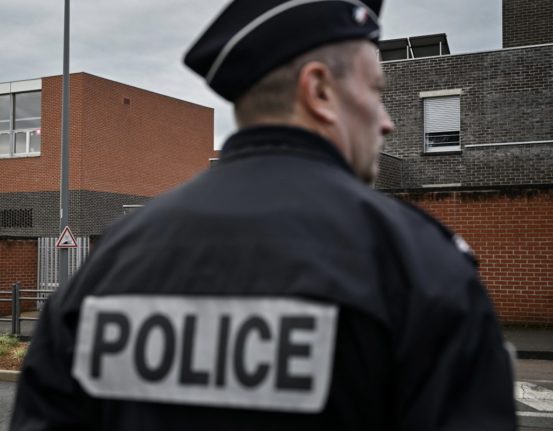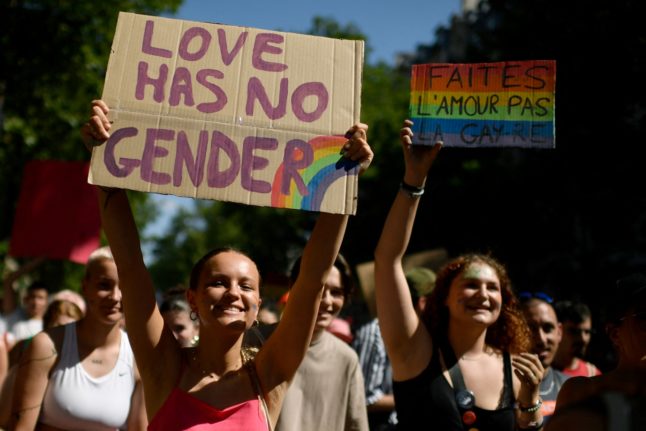Following a disagreement in early March, the female student, who has now been expelled from the Michel-Ange school in Villeneuve-la-Garenne, called the teacher a “big bitch” and said “in the name of Allah, I’m going to kill her”, French daily Le Figaro reported.
On Wednesday, the teenager’s brother went to the school to seek an explanation for his sister’s exclusion. Feeling threatened, the teacher went to the police to press charges about the student’s earlier death threats.
The girl has not yet been arrested for questioning, Le Figaro said.
This followed the news that the headmaster at the Maurice Ravel school in eastern Paris quit this week after receiving death threats online following an altercation with a student last month. He had asked her to remove her Muslim veil on school premises and she refused.
His departure sparked outrage, with Prime Minister Gabriel Attal saying France would seek to protect teachers and secularism, a key pillar of French education.
READ ALSO: Reader Question: Can I wear a hijab or headscarf while visiting France?
On Friday, lawmakers and officials, including Paris deputy mayor Emmanuel Gregoire, joined several dozen people for a rally in front of the school in the capital’s 20th district, heeding the call from the Socialist Party.
“We will not back down,” Bruno Bobkiewicz, general secretary of SNPDEN-Unsa, France’s top union of school principals, said at a news conference later Friday.
‘Nothing but secularism’
Bobkiewicz said school heads will continue to defend secularism.
“They know what they have to do and will continue to do it in spite of everything,” he said.
“There’s no room for negotiation, it’s all about secularism, nothing but secularism, and there’s no question of backing down on this subject.”
Secularism and religion are hot-button issues in France, which has Europe’s largest Muslim and Jewish communities.
The headmaster’s departure comes amid tensions in France following a series of threats and the murder of two teachers by radicalised former pupils, in 2020 and 2023.
In recent days, dozens of schools have also received threats of attack accompanied by gruesome videos.
Education Minister Nicole Belloubet said Friday a national “mobile school force” that could be dispatched to schools to protect their security would be established.
A member of the minister’s team told AFP the force would consist of around 20 people and could be deployed within 48 hours “in the event of an acute crisis.”
In 2004, authorities banned school children from wearing “signs or outfits by which students ostensibly show a religious affiliation” — such as
headscarves, turbans or Jewish skullcaps — on the basis of the country’s secular laws, which are meant to guarantee neutrality in state institutions.
‘We don’t stigmatise religions’
Martin Raffet, head of parents’ association FCPE Paris, said earlier in the day that some pupils did not understand the concept of secularism.
“The law needs to be discussed. Some pupils don’t understand it,” he said.
“We need to take the time to explain it to them and show them that we don’t stigmatise religions.”
READ ALSO: EXPLAINED: What does laïcité (secularism) really mean in France?
In late February, the headmaster had asked three students to remove their Islamic headscarves on the school premises.
But one of them — an adult who was receiving vocational training — refused and an altercation ensued, according to prosecutors.
The principal later received death threats online.
He said that he had taken the decision to leave, citing his safety and that of the school.
Education officials said he had taken “early retirement”.
Frederic, a parent at the school who declined to give his last name, said that for the past month pupils there had been “a bit agitated”.
The headmaster’s resignation had left parents feeling guilty, he told AFP.
“We wondered if we’d shown enough support.”
The SGEN-CFDT teachers’ union said: “The repetition of this type of scenario, against a backdrop of the instrumentalisation of religious beliefs,
is unacceptable and could lead to tragedy.
“We know this only too well in the French education system, following the murder of Samuel Paty.”
Paty, a 47-year-old history and geography teacher, was stabbed and then beheaded by a radicalised Islamist near his secondary school in the Paris suburb of Conflans-Sainte-Honorine in 2020.



 Please whitelist us to continue reading.
Please whitelist us to continue reading.
Member comments